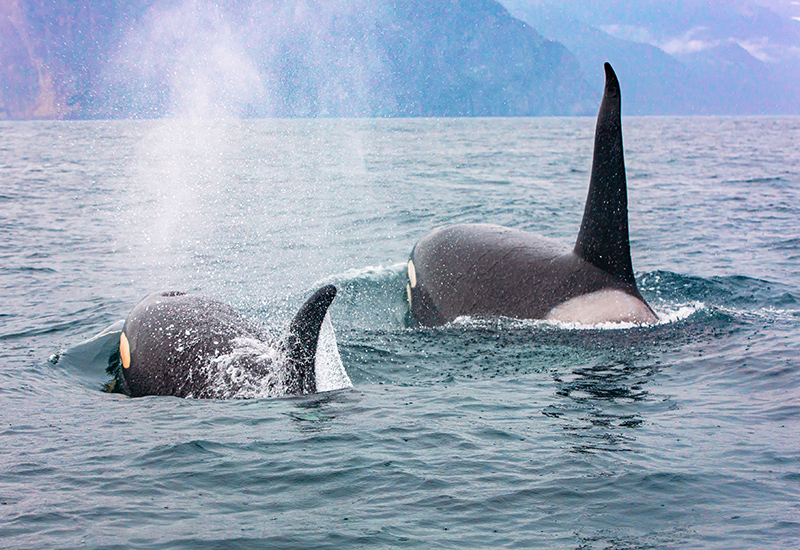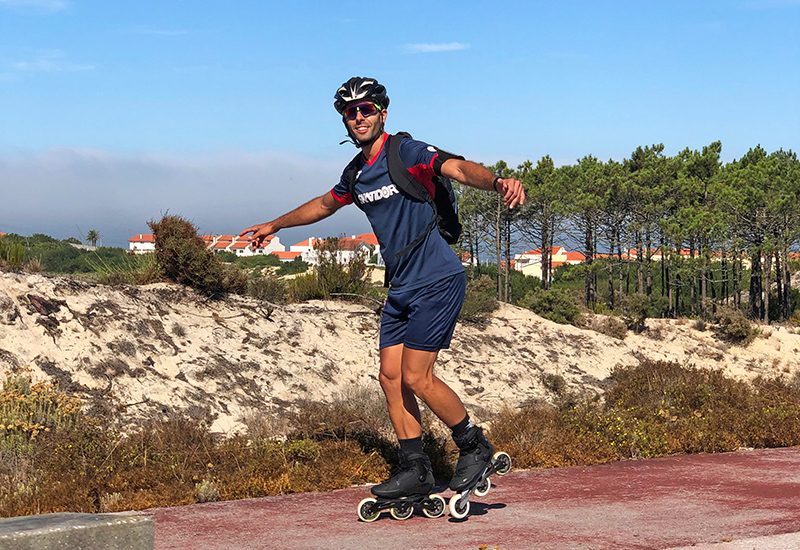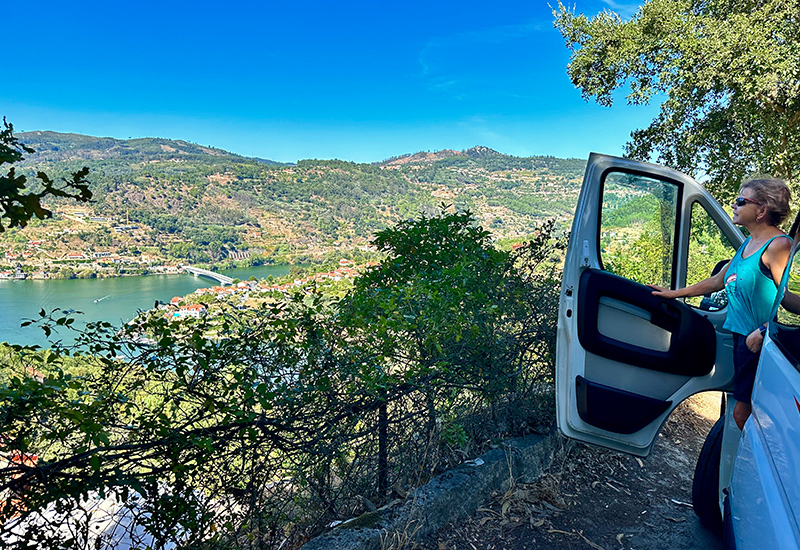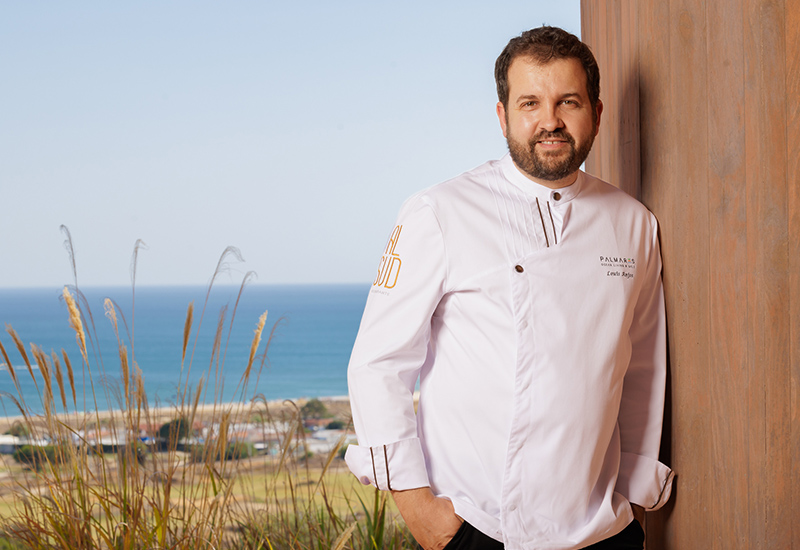After numerous sightings of orcas off the Algarve coast and reports that they were ramming boats, Sophie Sadler spoke to marine biologist Élio Vicente to learn more about this phenomenon.
Orcas are the largest member of the dolphin family. Although Portugal does not have a resident population of these cetaceans, they are often seen in our waters as they are a transient species. They follow food migrations.
Orcas are normally seen in the Algarve in Spring when they travel from the Atlantic to the Mediterranean following the tuna. The reverse happens in the autumn, so recent sightings off the Algarve coast are a pod returning from the Mediterranean. Preferring cooler waters, they usually reside in higher latitudes, such as Scandinavia and off the coast of the British Isles.
On 6 October, orcas made the news over an incident involving a Swedish couple on board a boat off the Cascais coast. They were left without a motor on their vessel after a group of orcas rammed their boat. This followed an intervention off Sines in July, where a group of orcas damaged a sailing boat so badly that it sank. The occupants were able to board a dinghy and radio for help.
So what is causing this behaviour? Élio Vicente, who works at Zoomarine, is an expert in dolphin behaviour. “If orcas see a boat, they get curious. The younger males, between three and 14 years old (who you could call ‘the teenagers’ in the pod), will go to investigate. They are acoustic animals, so they find boats with engines fascinating. In the last five years, we have witnessed an interesting trend in Cadiz and Gibraltar and now in Portugal, where young males interact with the rudder. The rudder makes noise and moves and this is interesting for them.”

What Élio is describing is similar to a dog chasing a squeaky toy. “Yes, it is a play behaviour; it is not aggressive. Once they have destroyed the rudder, they then move on. They are not trying to knock the people into the water and they will not kill humans.”
Yacht owners are calling for more information on how to handle dolphin interactions which can damage their boats. The advice from the ICNF is that if sailors see orcas, they should immediately switch off the engine.
So are orcas dangerous? “Well, dogs attack humans, yet we still call them our best friends. Orcas are not dangerous, but I personally would stay in the water with a shark, but I would always get out if I saw a dolphin. They are dangerous to interact with as they are so powerful and fast that the impact of their fins could kill us. The ocean is their habitat and we should not impose our presence on them. So if you see a dolphin in the water, never try to swim with it. They will not, however, attack a human being.”
Despite the obvious concern from sailing boats, there is no doubt that anyone who spotted orcas off the coast of the Algarve during their migration will probably feel privileged to have witnessed such a magnificent creature in the wild.
Élio Vicente is a marine biologist and Director of Conservation at Zoomarine Aquatic Park
A Facebook group devoted to orca sightings for sailors who are calling for more advice:
www.facebook.com/groups/561849485159404
Did you know…
Also called Killer Whales, orcas are the largest member of the dolphin family. They were given the name “killer whale” by ancient sailors who saw them preying on large whales.
A male orca can be nearly ten meters long and weigh 10,000kg. Their dorsal fins are up to 2m tall. Orcas are highly intelligent and able to coordinate hunting tactics.
Female orcas are thought to live to 80 years of age or more.















